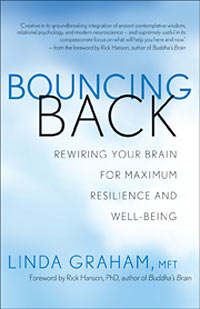“I can still feel the impact of a musical friend who one day called me ‘musical.’ No one had ever called me that. I didn’t really play an instrument. I was no soloist. Yet . . . I instantly felt known and loved. . . . [He] noticed, validated, and appreciated something deeply true about me.”
These words were written in an article by Mark Labberton and beautifully remind us of the importance of “names” we assign to one another.
Whatever “names” or even “images” we assign to other people carry a lot of weight, and for better or worse, you’d better believe they stick.

Long before I considered myself a writer, I thought of words as little pieces of puzzles. The end result of piecing them together might be a letter to a loved one, an essay at school, or a few lines in my diary about the impossibly cute boy who worked at an arcade in town.
Naturally I never thought about my effectiveness with words. I simply knew I loved being in their presence. I remember when I actually began to feel like, maybe… just maybe… they enjoyed being in my presence as well.
My aunt (one of the sweetest people in the world, by the way) was always one of my favorite family members to write letters to. She loved to hear about my pets, friends, school, clothes, etc. If I had an interest in something, she wanted to know all about it. One Christmas (I believe I was around 14-15), she and my uncle came home for Christmas. Right smack in front of the entire family, she launched into how much she loves getting my letters. She said I had a “gift” for writing. She went on to say that she kept all of my letters. Then my mom said that she kept all of my poems and short stories that I’d written in school.
I thought, “They KEPT all that crap???”
My aunt told me, “You should be a writer,” and my mom replied, “She already is.”
I have no idea what gifts I unwrapped under the tree that year, but I know that two of the most important people in my life gave me one of the best gifts I’ve ever gotten – belief in myself.
Since that day, whenever I’ve written anything I’ve sat a little taller and felt a lot more confident. Whenever I’d get anything less than an A+ on an essay, I’d think, “Well, you obviously don’t know what you’re talking about. I’m the writer here.”
Some might say my mom and aunt created a monster and I can’t say they’d entirely be wrong. But it’s a writing monster and that’s what counts.
Many years passed between the day my mom and aunt made me feel 10 feet tall. I became a wife (to the cute arcade boy, by the way) and mother of three beautiful daughters. I threw myself completely into these roles. The only writing I did was letters and curriculum for my daughters, who I home-schooled all the way from Kindergarten to 12th Grade.
When I decided that I’d very much like to be a web publisher and blog writer, I remembered what my family had said all those years ago. Their words gave me confidence to try. They stuck.
When I first began writing online, sometimes I’d read the work of truly great authors and I’d begin to doubt myself. I’d think, “I haven’t been doing this as long as them… I don’t have their education…” ” Right around this time, a friend of my husband’s who happened to have a great reputation online as a web publisher said that he was “in love with my writing.”
This compliment was like a shot in the arm and I felt positively sassy again.
Words carry so much weight! Whether they’re words we say to our children, our spouse, ourselves, or people we barely even know.

Think of words like this: When you call someone “dumb” or even say they did a “dumb” thing – it’s as though you’re writing the word on a post it note and pinning it to their top. They WILL live down to your expectations.
When you call someone “gifted,” “smart,” “witty,” etc… they WILL live up to your expectations.
Think about things people have called you. No doubt both good and bad names come to mind. That’s a perfect illustration that these labels STAY with us and a wonderful reminder to watch what words come out of your mouth.
Now for a harder exercise – think about the names you have called other people or the titles you’ve given them. If you’re the sort of person who has pinned far more negative words than positive, make it right. If you think you’ve been particularly harmful to someone’s self confidence or fear that someone doesn’t think you believe in them – don’t let another day go by without clearing things up.
Words have the power to change lives.
Thanks for reading… you’re awesome!
~ Joi
“If you wouldn’t write it and sign it, don’t say it.” – Earl Wilson



